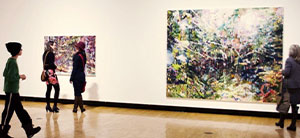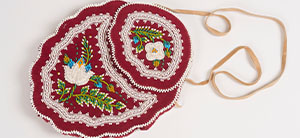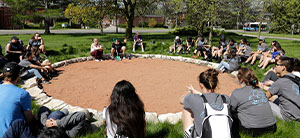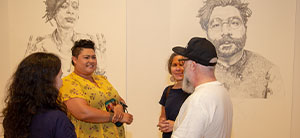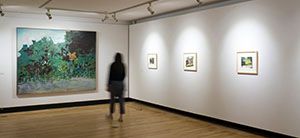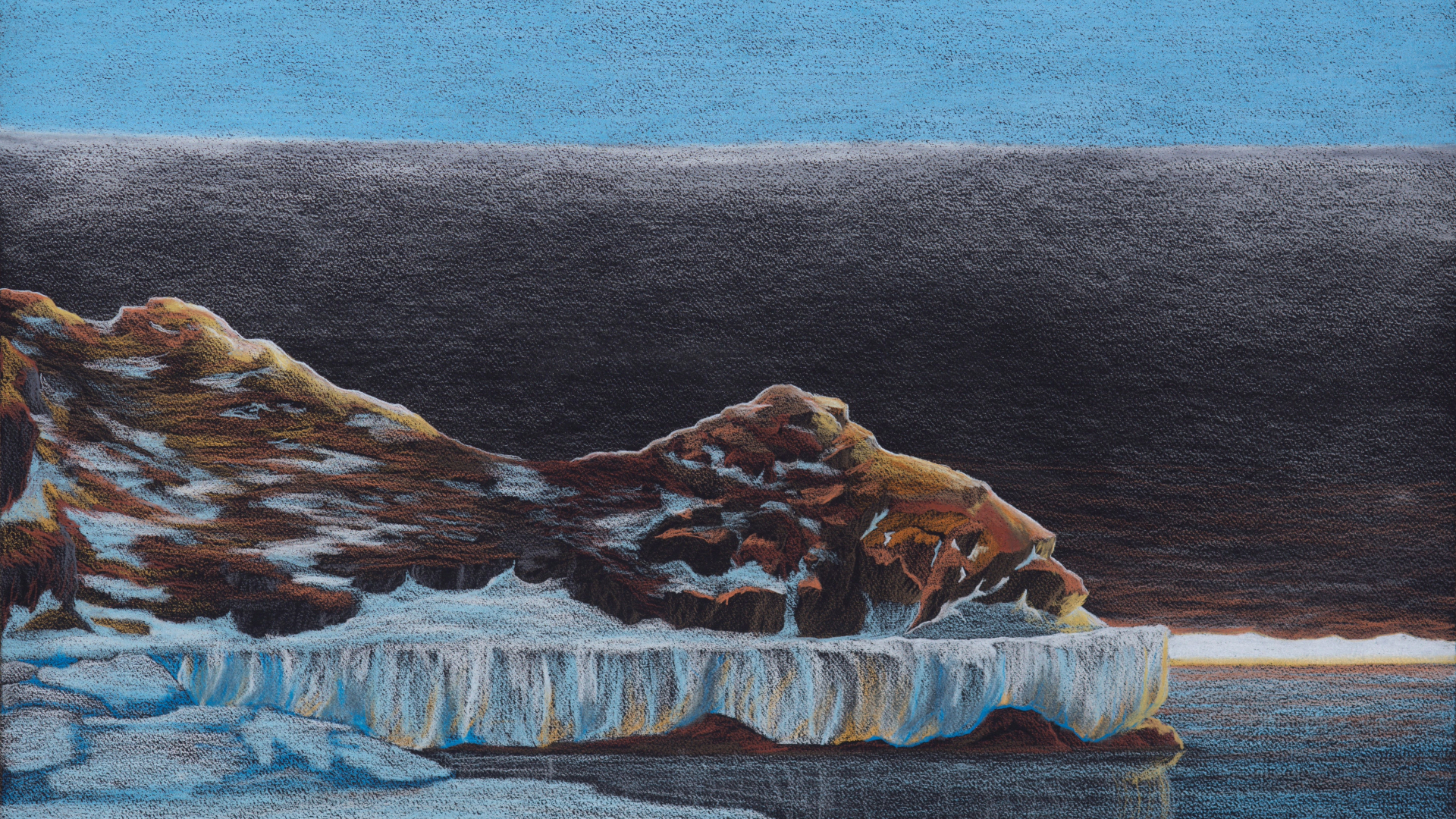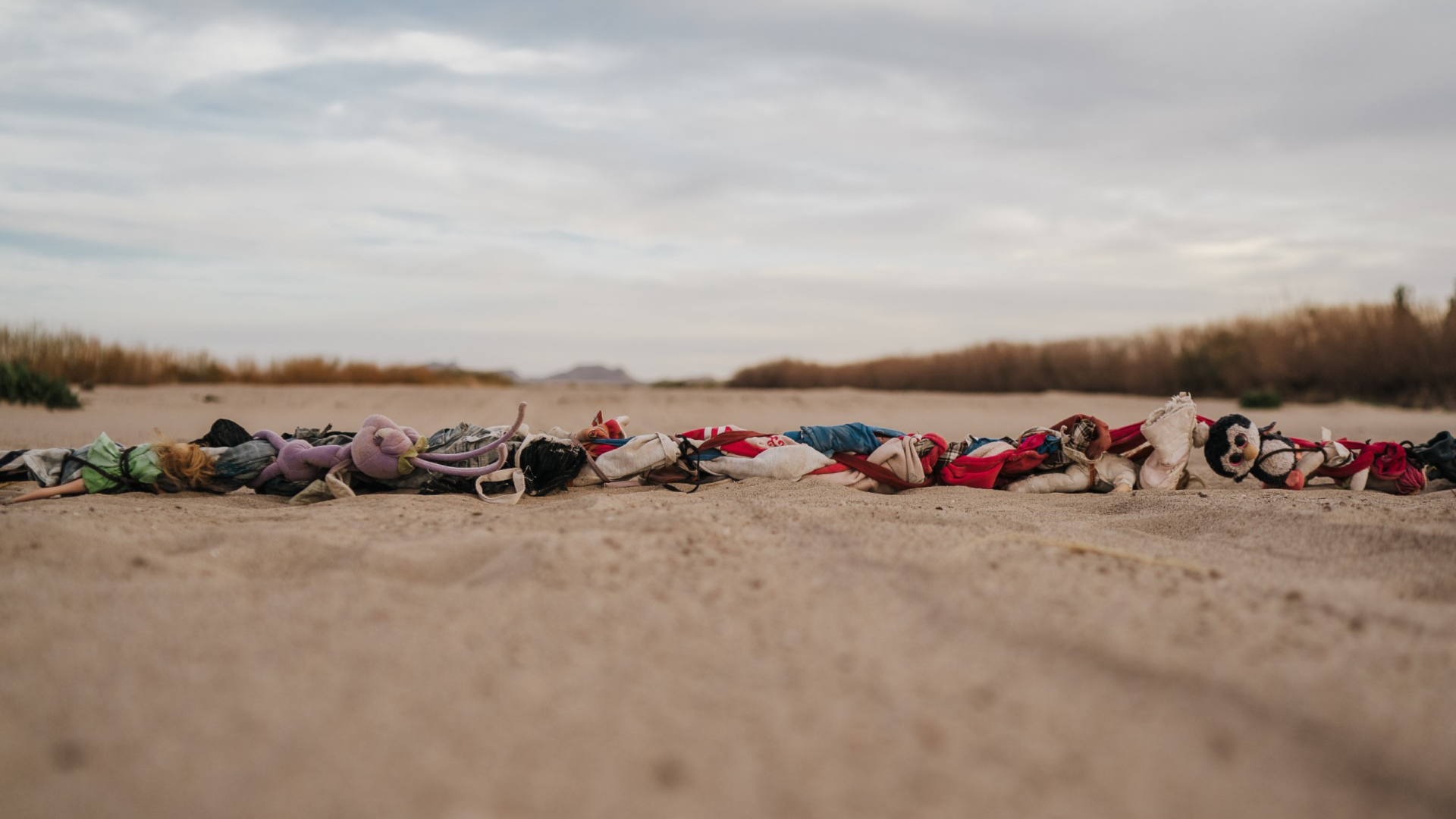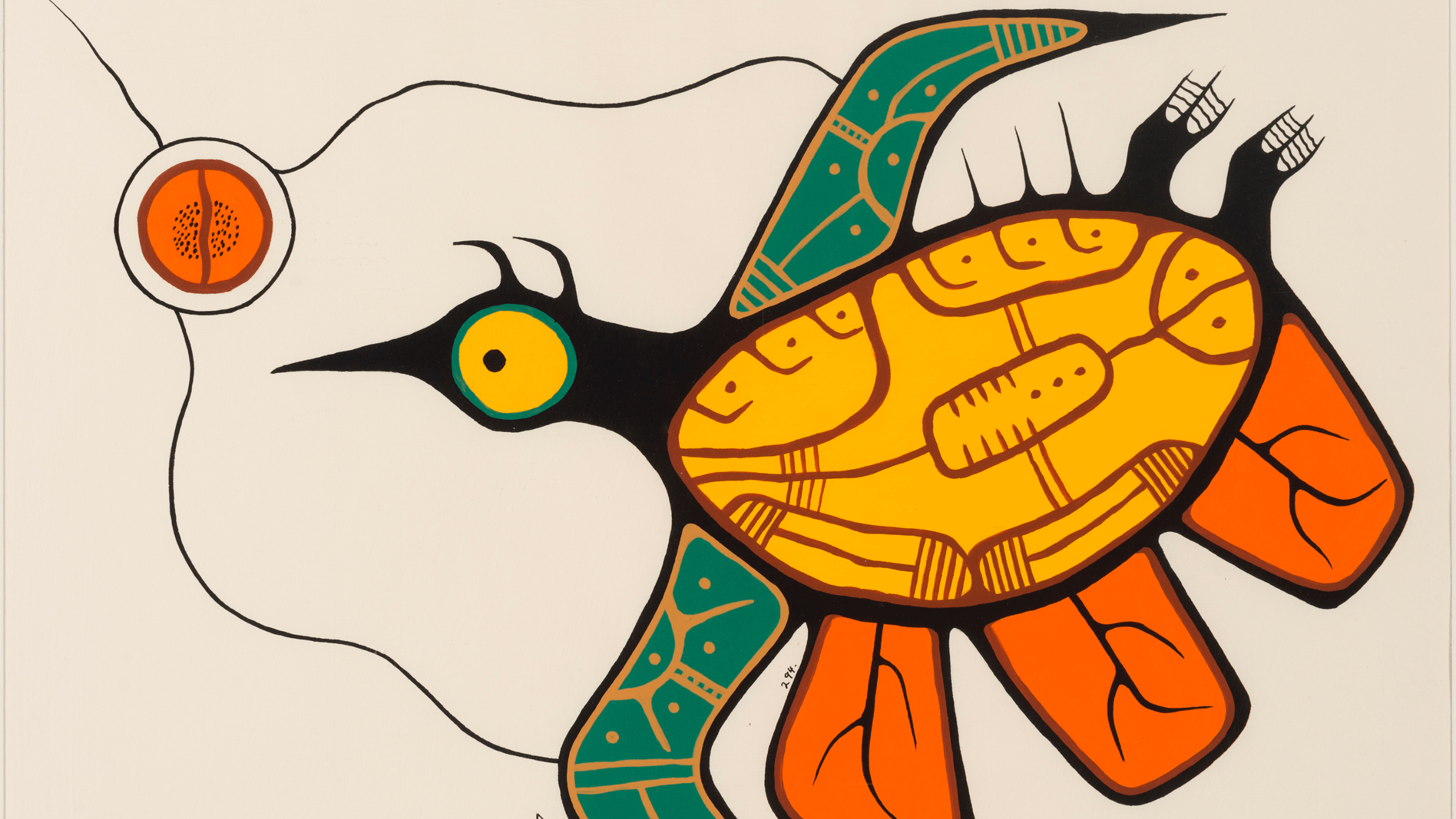
Yours in Native Spirit
Richard Bedwash
Shauna McCabe and Colinda Clyne
While the vivid, symbol-rich images of Anishinaabe artist Richard Bedwash are clearly about storytelling, this is only one facet of a more intricate narrative that connects his work, his life, and the cultural landscapes of Guelph. Born in 1936 on Long Lac Reserve #58, Bedwash grew up in an environment steeped in traditional Ojibwe teachings and knowledge until the age of 7. He was then sent to St. Joseph’s Residential School in Thunder Bay, an institution where six children died and another 16 remain unaccounted for, as highlighted in Tanya Talaga’s Seven Fallen Feathers.
While Bedwash would return to the reserve and to more traditional ways of life at the age of twelve, the displacement he had experienced would shape his later interest in artistic expression, as did his relationship with Norval Morrisseau, who became a lifelong friend. Bedwash apprenticed with Morrisseau from 1966 to 1968, developing his own approach to the Woodland style that Morrisseau had pioneered. Immersing himself in the stories of Elders, painting offered Bedwash a means to reconnect with the worldview that was so central to the culture and history of his community. His paintings here convey elements of Ojibwe beliefs and stories, using bold, pure colours and black lines to create images that suggest symbolic and spiritual meaning, accompanied by his own short narrations that draw on stories he read or heard – or parts of stories that he made into his own.
At the heart of a conversation about the local landscape and what is valued and commemorated, Bedwash’s artwork resurfaced in public discourse in Guelph in 2023 as murals attributed to the artist remain at risk within the aging structure of the abandoned Guelph Correctional Centre (Ontario Reformatory). The murals were created while he served a term there in the 1970s and was active in the Native Sons, a grassroots organization established in 1976 by Indigenous inmates at the correctional centre. Then, as now, young Indigenous men were disproportionately represented in the correctional system. Finding community there, “Native Brotherhoods” such as Native Sons affirmed the healing value of traditional knowledge and ceremony while supporting cultural, social, and spiritual expression within a justice system that consistently failed them.
Creative activity was perceived as integral to rehabilitation at the correctional centre, and, in 1977, the Native Sons published a collection of poetry accompanied by Bedwash’s line drawings, two of which appear on the gallery walls, along with several poems. At that time, Judith Nasby, the founding Director of the Macdonald Stewart Art Centre, now the Art Gallery of Guelph, began a correspondence with the artist, whose letters – in beautiful script – are each signed “Yours in Native spirit, Richard Bedwash.” Nasby would ultimately commission a set of paintings—the foundation for his first solo exhibition. Deeply impacted by the colonialism of incarceration, from his experience of residential school to his term in the correctional centre, Bedwash’s expressive paintings were a reclamation of knowledge, a visual language of traditional stories and oral histories that he was intent on preserving and passing on.


Curated by Shauna McCabe and Colinda Clyne, this exhibition is organized and presented by the Art Gallery of Guelph with the support of the Ontario Arts Council and Canada Council for the Arts
Gallery
View More Exhibitions
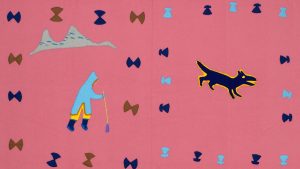
exhibition
September 18.2025 / January 4.2026
Explore vibrant landscapes from the AGG’s permanent collection that use colour not only as a formal strategy, but as a way of relating to Nonhuman life, Land, Water, one another, and to the self.

exhibition
September 18.2025 / January 4.2026
Through practices that span net art, interactive sculpture, installation, video, and textile, Soft Internet Theory invites audiences to consider a gentler, more human digital future.

exhibition
September 18.2025 / January 4.2026
Challenging colonial conceptions of how Land and Water are used, valued, and protected, Reworldings speaks to living relationships with place and peoples, to the interdependence of species and systems, and to the urgent need to restore not only ecosystems, but justice.

exhibition
September 18.2025 / January 4.2026
Explore how artists reimagine landscapes shaped by industry and urbanization, challenging our ideas of nature, beauty, and human impact on the environment.
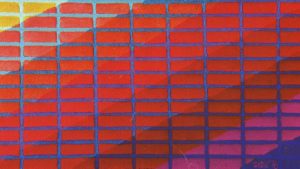
exhibition
May 22.2025 / August 29.2025
Fuzzy Thinking explores how textiles’ softness and tactility challenge boundaries between art and craft, weaving together historical and contemporary works rooted in material and cultural complexity.
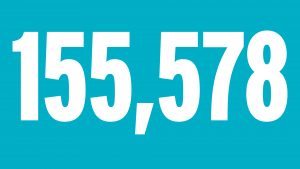
exhibition
May 22.2025 / August 29.2025
Curated through an open call, artists from across Guelph were invited to share their work in a collective reflection of the city’s creative landscape.
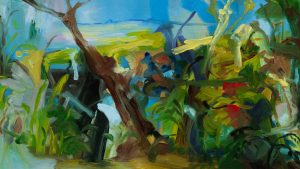
exhibition
May 3.2025 / May 8.2025
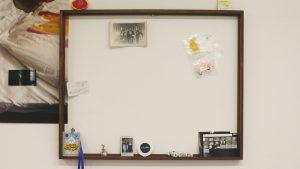
exhibition
April 24.2025 / April 29.2025
Through photography, Bahar Enshaeian unravels the intricate layers of memory, identity, and belonging. Rooted in personal experience, her work speaks to the complexities of migration, displacement, and the search for home.


